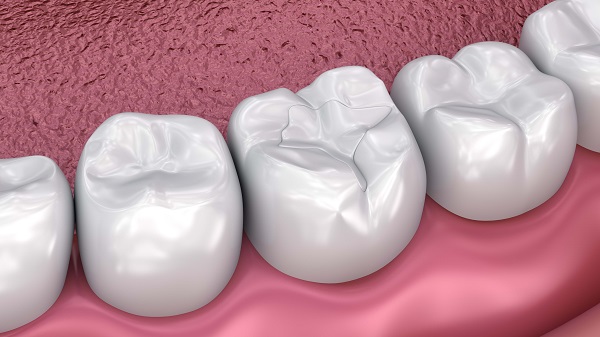How Does Dental Sealant Treatment Work?

The dentist may have mentioned something about getting dental sealants as a preventive treatment for your kids. This preventive treatment stops tooth decay, but how does it work? Continue reading to learn about dental sealant treatment and how it works to protect teeth.
The need for preventive care
In society today, particularly in the United States, there are varieties of sugary liquids in several forms. Many parents feed their children fermented carbs and sugary liquids. These foods and drinks, as well as chewable vitamins and sugary snacks, stick to the chewing surfaces of teeth. These sugars feed the bacteria in the mouth, which produce plaques that cause cavities, especially on the first and second molars.
Dental sealants were introduced several decades ago to prevent cavities in children and young adults. According to the American Dental Association, applying sealants to permanent molars can reduce the occurrence of cavities by up to 80 percent. Generally, children hardly brush their teeth thoroughly because they lack dexterity. Consequently, the hard-to-reach areas are neglected.
How sealants prevent cavities
Dental sealants cover all the nooks and crannies of the teeth that may be prone to tooth decay. Some areas of the teeth are inaccessible, regardless of the energy one puts into brushing. The grooves on the molars are prone to this issue. Due to this, they are more prone to cavities than other teeth. The sealant material fills and adheres to the tooth, making it smooth and less prone to cavities.
Plastic resin is the material of choice for sealing the tooth. Not only is it malleable enough to fit into the pits and fissures of the teeth, but it also prevents the entry of bacteria. Ultimately, a sealant ensures that the tooth continues to retain its natural form and structural integrity.
Sealants do not stop bacteria only, but they also stop food particles and sugars. After eating, food debris can get trapped in hard-to-reach areas. It is difficult to clean them out because teeth grooves are small, and some people have pits that are deeper than usual. Only dental cleaning performed by the dentist can get to those areas.
A dental sealant stops food from getting trapped in the first place. This is why dentists suggest giving children sealants as soon as their molars erupt. Even if the food debris gets trapped before the application, there is no need to worry. The dentist will clean the teeth properly before applying dental sealants.
Are dental sealants failsafe?
Certainly, dental sealants do not provide 100 percent protection for teeth. The sealant may need to be reapplied over time if it gets damaged. Therefore, parents must take their children to the dentist every six months and help them practice good oral hygiene. Poor oral habits like ice chewing or nail biting can damage the sealant prematurely. With proper care, the sealant can protect the molars for up to a decade.
In conclusion
If you have a child that might benefit from dental sealants, bring them to the dental office for a checkup. The dentist will examine the child’s teeth and determine if they need preventive treatment.
Request an appointment here: https://premierdentalcareutah.com or call Premier Dental Care Of Utah at (801) 316-6577 for an appointment in our West Valley City office.
Check out what others are saying about our services on Yelp: Read our Yelp reviews.
Related Posts
Patients often ask about the importance of maintaining oral health before problems arise. A preventive dentist focuses on avoiding dental issues through proactive care, routine checkups, and education. This blog addresses some of the most frequently asked questions related to preventive dentistry.A preventive dentist works to help patients avoid oral health issues such as cavities,…
If you have recently gotten a sleep apnea diagnosis, you will want to learn about the treatment options and how they work. CPAP devices are the most popular, but dental appliances are also a non-surgical option to consider. Continue reading to learn about the effectiveness of oral devices for sleep apnea treatment.Dental appliances for treating…
Visiting a family dentist biannually (every six months) can help maintain optimal oral health. A family dentist provides consistent, comprehensive professional care that can prevent serious dental issues before they develop. This routine schedule offers a practical approach to long-term oral hygiene and wellness.Seeing a family dentist every six months is important because these visits…
All-on-4® implants refer to a procedure where the patient gets four posts attached to their jawbone to insert dentures for a simple, quick, and long-lasting smile. They are growing in popularity due to their permanence and effectiveness. There are some things to consider before getting an implant surgery, with one of the most significant components…
